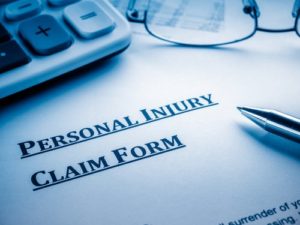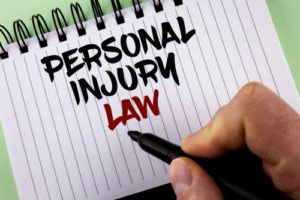
Every year, countless people in large American cities, including Boston, suffer injuries as a result of violent assaults and other crimes. According to a 2018 report on Crime Victimization by the Bureau of Justice Statistics (BJS), there were over 3.3 million victims of violent crimes nationwide who were over the age of 12.
These injury victims might have claims for compensation if the owners of the properties where they suffered their injuries failed to maintain adequate security measures. If you are injured in an attack or assault while on the property of others, you might seek the assistance of a Boston negligent security lawyer.
Ben Crump Law, PLLC seeks to hold negligent property owners accountable when they fail to take appropriate measures to protect the public. We take negligent security claims on a contingency fee basis, which means that we do not collect any money or fees from you up front. Instead, we get our fees from the settlement or award that you receive. Call (844) 730-5111 to learn more information about legal services that our law firm offers.
Providing Evidence of Negligent Security
Individuals and companies who operate places open to the public have a duty to act reasonably to keep patrons and others who lawfully visit their property safe. In most cases, negligent security laws apply to businesses or others who operate places open to the public.
The law provides no exhaustive checklist of the security measures that these businesses must provide their customers. However, the law does impose an affirmative duty on the property owner to implement and maintain reasonable security for the protection of the public. The level of security that is reasonable also depends on the location, the level of crime in the immediate area, and other relevant factors.
Property owners should take security precautions that are necessary to keep others safe. If a potential crime on their premises is reasonably foreseeable, then they should take efforts to prevent those crimes from occurring and resulting in harm to others. Evidence showing that an assault or violent crime was potentially preventable with basic security precautions can be a critical part of a negligent security claim.
For instance, one common security precaution that property owners may neglect is adequate lighting in parking lots and other outdoor areas. Property owners also may want to ensure the presence of security guards or the installation of security cameras in busy restaurants, nightclubs, or bars.
In some cases, they also may want to secure locks and fences to prevent the trespass of unauthorized individuals. These precautions could help curb the incidence of violent assaults and similar incidents that cause injuries to others. Particularly in high-crime areas, property owners should take reasonable measures to ensure the safety of others, or they may face liability for any resulting injuries.
For a free legal consultation with a negligent security lawyer serving Boston, call (844) 730-5111
Seeking Monetary Awards Through Negligent Security Claims
Negligent security claims are a type of premises liability claim in which parties injured in violent crimes seek to hold property owners responsible for failing to provide adequate security. The compensation available in negligent security claims differs depending on the extent and type of injuries that the victims suffered. However, the costs that victims of violent crimes must bear are often high.
The available types of compensation in a negligent security claim might include:
- Expenses for the treatment of physical injuries
- Counseling and mental health treatment costs for emotional trauma
- Lost wages and loss of future income
- Loss of enjoyment of life
- Permanent impairment
- Loss of consortium by the spouse of the injured party
Negligent security claims cover not only immediate medical expenses in the aftermath of the attack or assault, but also future needs to treat victims, both physically and mentally. If property owners failed to take sufficient precautions to prevent this form of harm from occurring, they could be financially responsible for all these expenses and more.
Boston Negligent Security Lawyer Near Me (844) 730-5111
Deadlines for Filing Negligent Security Claims
Massachusetts General Law Chapter 260, § 2A establishes a strict time limit for filing personal injury actions based on negligent security. Failure to abide by this statute of limitations can result in you being unable to pursue any claims, no matter how negligent the other parties were. As a result, consulting a Boston negligent security lawyer as quickly as possible after you suffer injuries may be helpful.
State law requires that injury victims formally file their negligent security claims in court within three years of the date that the violent assault or crime occurred. Waiting to file your claim past that deadline is likely to result in the court dismissing your claim. You also will be unable to hold property owners accountable whose reasonable security measures might have prevented your injuries.
Click to contact our Boston Personal Injury Lawyers today
Call Our Law Firm About Your Rights to Compensation
Falling victim to a violent crime in which you suffer severe injuries can be overwhelming and stressful, both emotionally and financially. You might be unable to work or in need of extensive rehabilitation before you return to your regular daily activities. Ben Crump Law, PLLC, might be able to ease some of your burdens by helping you seek compensation for your injuries.
A Boston negligent security lawyer can investigate the circumstances that led to your injuries and determine the existence of all potentially liable parties. By entrusting your potential legal claim to our law firm, you might be able to get compensation for the expenses stemming from your injuries.
Call (844) 730-5111 today and learn about your potential options for pursuing compensation on a contingency fee basis. You are not responsible for paying our fees unless you receive an award from the parties responsible for your injuries.
Call or text (844) 730-5111 or complete a Free Case Evaluation form








